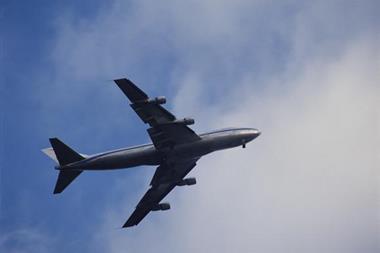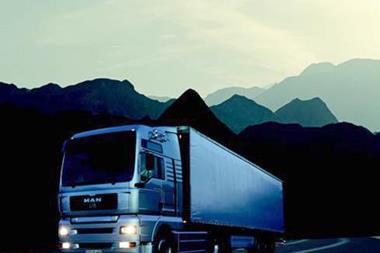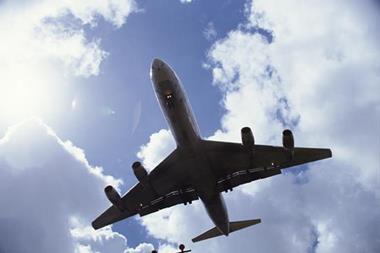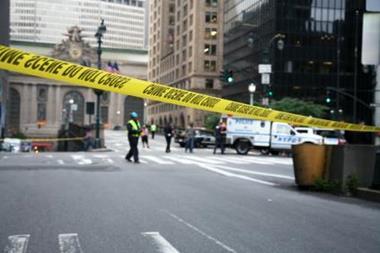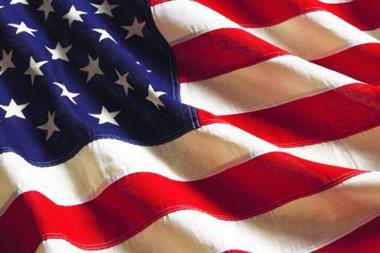Total economic losses resulting from the World Trade Center attacks in 2001 exceeded $190 billion, of which the total insured losses were around $30 billion, according to catastrophe modellers Risk Management Solutions (RMS). Even the 7 July 2005 London bombing, when insured losses were minimal, RMS estimates cost the British economy in the order of $4 billion to $6 billion.
What modellers and business executives have not quantified, however, are the cost implications of preventing a terrorist attack. There are few, if any, studies on the total cost of contingent business interruption costs associated with security alerts and thwarted terrorist attacks. It is doubtful if these costs are insured.
Rupert Sawyer, associate director - special risks, with Miller Insurance Services in London, said that trade disruption polices can cover the cost of delays that result from the action of a recognised authority, such as closing a port, but that few inquiries turn into orders. "I suspect quite a lot of people feel it will not happen to them."
In 2006, the transport industry was reminded just how much the prevention of a catastrophic terrorist attack can cost. Although the bill is a fraction of the human and monetary toll of a terrorist incident, businesses do not like these costs one bit.
Airline awareness
The aviation industry, for example, has experienced unforeseen contingency costs caused by a security scare rather than a terrorist attack. Although since 9/11, airlines and airports have been under more scrutiny than any other industry, they seem to have been taken by surprise by the August 2006 security scare in the United Kingdom.
On 10 August 2006, the UK government imposed a security crackdown at all British airports following a series of raids and arrests around London and the Home Counties to foil a terrorist plot. It is alleged that those who were arrested were planning to attack several trans-Atlantic flights using liquid explosives contained in carry-on luggage.
The UK Department of Transport (DfT) immediately stopped passengers carrying hand baggage on board. Passengers had to be seen tasting any of the limited categories of liquids that were allowed, such as baby milk, and keys, cash and documents had to be placed in clear plastic bags.
Perhaps the costs would have been minimal had the security crackdown only lasted a few days. However, the additional security measures were imposed throughout the height of the travel season in August and continued well into the autumn. It was not until 6 November when the European Union's new aviation security measures were imposed by the DfT, that British airport security measures were eased.
Airline executives have been counting the cost. Most have blamed the British Airports Authority (BAA) for a lack of security personnel and the drop in passenger numbers when the security crackdown occurred. BAA has admitted that passenger numbers fell 5% in August with a loss of revenue and incurred costs of £13 million, which includes a number of one-off costs specifically related to the immediate period following the introduction of the new security measures. However, BAA also has said that, despite the sudden tightening of security at all UK airports on 10 August, fewer than 2% of a total of 116,000 flights were cancelled at their airports.
Nevertheless, British Airways estimated that the security disruptions cost the airline £100 million during its second quarter ending 30 September. This was principally from reduced revenues, equivalent to around three to four points of margin in the quarter, according to BA's chief financial officer Keith Williams.
"August 10 does not have the same resonance as 7/7 or 9/11 but, fortunately, neither was it as tragic as those two dates," BA's chairman Martin Broughton told stock market analysts in November when the second quarter results were announced. "However, the impact of the events of that day on British Airways, and, indeed, on Heathrow (airport) as Britain's gateway has also been very far reaching."
Mr. Broughton did not labour his feeling about the way the new security procedures were imposed, but he added, "I would not like to put a cost on the damage to the reputation of Heathrow as a result of the media images, queues and chaos which flashed around the world. The impact on our short haul premium business and the long haul premium transfer traffic has been significant."
Ryanair officials were so livid about the length of the security crackdown that the airline submitted a compensation bill for £3 million to the DfT for cancellations and lost business just between 10-16 August. The money, if paid, said Ryanair, would go to charity.
Other airlines also incurred additional costs as a result of the measures at UK airports. "Everybody who flew into Heathrow, Stansted or Gatwick airports suffered," said Ralf Oelssner, director of corporate insurance for Lufthansa, which had to cut a fifth of its flights on 10 August to ease the pressure at Heathrow. However, airlines cannot really quantify the cost of contingency measures such as this before they are implemented, said Mr. Oelssner. "It is very difficult to assess these costs."
Additional security strengthening
While security has been strengthened in the aviation sector, so too has it been enhanced for ship and port facilities in the European Union since 9/11. This is very important as over 90% of the EU's external trade goes by sea, and more than 1 billion tonnes of freight a year are loaded and unloaded in EU ports. The EU has more than 1,200 seaports, 4,000 port facilities and 9,000 ships under its flags, according to its own statistics.
Today, each ship intending to enter a member state's port must provide 24 hour advance information concerning ship and cargo safety. In October 2005, the European Commission also requested that member states draw up port security plans, which the Commission would inspect to verify their effectiveness. The European Union also cooperates with the US authorities to eliminate potential terrorist threats from maritime container transport in the framework of the Container Security Initiative (CSI) launched in September 2004.
In August 2006, the European Commission also noted, "Security costs in transport can be significant and are currently largely borne by users." An EU report on the financing of security measures calls for more transparency of security taxes in the maritime and aviation sectors, which would benefit the users of transport services.
What has been upsetting a lot of smaller businesses across the European Union, however, is a European Commission proposal, published in February 2006, to enhance the security of the entire supply chain to prevent terrorist attacks. This would establish minimum European standards that operators would observe in exchange for receiving a secure operator status from national authorities.
The UK's Federation of Small Businesses (FSB) has said that such a regulation would cost small and medium sized businesses across Europe more than 55 billion euros ($72 billion) without any clear benefits. This sum comes from an impact assessment study by the European Commission.
The proposal calls for member states to create a quality label for security. Firms would subsequently be granted the status of secure operator but, to be recognised as such, they would need to prove that there were no security gaps in their areas of responsibility. "This will include screening employees and costly audits," stated the FSB. The proposal foresees a voluntary phase running from 2006-2008, after which it would become compulsory.
"The FSB is very concerned that the struggle to defeat terrorism, which we all of course support, is being misused to create a heavy -handed and bureaucratic system that will put many people out of work without actually increasing security," stated Tina Sommer, FSB European Affairs chairman.
The passage of such a proposal is likely to slow down following serious questions from the European Council of Ministers and the European Parliament on its implementation, said Andrew Cave, senior advisor on EU affairs for the FSB. Such questions include the cost involved, whether it is manageable and who is responsible for implementing the proposal.
- Stacy Shapiro is a freelance writer on insurance and risk management.
NEW US PORT SECURITY LAW
Radiation equipment to screen containers arriving from overseas ports must be installed at 22 of the busiest ports in the United States by the end of 2007, following passage of the Security and Accountability for Every (SAFE) Port Act, which became law in October 2006. The law requires the Department of Homeland Security to deploy systems that can detect nuclear or radiological material without opening the container at all domestic seaports to prevent a nuclear weapon from entering the country.
Furthermore, the legislation takes a global approach to shipping and cargo security by improving two important international screening programs: the Container Security Initiative (CSI) and the Customs-Trade Partnership against Terrorism (C-TPAT) programme. The act also helps track and protect shipments en route to the United States, through improvements to high-risk cargo targeting and tracking systems.
The SAFE Port Act is one of several tools to tighten port security in the United States to protect the country against terrorist attack, particularly by use of "weapons of mass destruction" which may be hidden in cargo. During 2006, US Customs and Border Protection expanded CSI, increasing participating ports to 50. CSI now covers nearly 82% of US-bound shipping containers.
The new law has so far provoked little comment from shipping interests. The American Association of Port Authorities (AAPA), which represents 150 port authorities in North and South America, welcomed it as a comprehensive plan to improve maritime cargo and facility security, while maintaining an efficient flow of commerce.
Far more has been made of Title VIII of the act is also known as the Unlawful Internet Gambling Enforcement Act of 2006, a late amendment to the bill which prohibits the transfer of funds from a financial institution to an internet gambling site.





